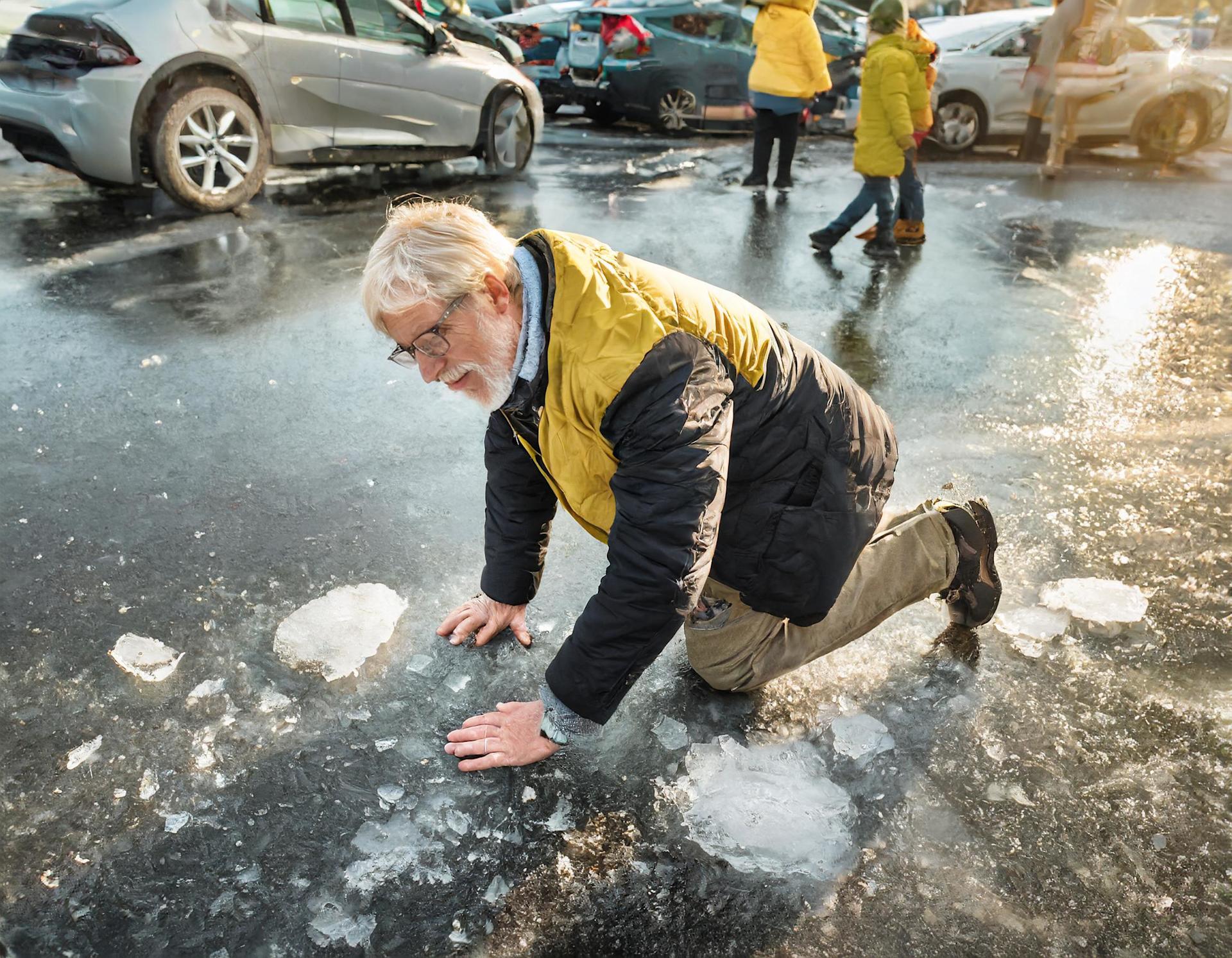
Slips, trips, and falls on ice are more common than you might think, and they can lead to various injuries, some quite serious. In this article, we'll explore the types of claims you might have if you're injured from slipping on ice, who you can claim damages from, and how much you might receive.

During winter months, incidents of slips, trips, and falls are frequent, especially in workplaces. According to a report from the Labour Force Survey 2022/2023, 32% of non-fatal injuries in the UK are caused by slips, trips, or falls. While some incidents might be minor and cause a chuckle, others can result in more severe injuries like heavy bruising, fractures, sprains, strains, back or head injuries, and even internal injuries.
Slipping incidents often occur in places like public footpaths, car parks, entrances, and exits, bus stops or train stations, shops, and outdoor steps, whether in public locations or workplaces. So, can you claim damages, and if so, from whom?
Can you claim compensation for slipping and falling on ice?
Whether you can claim compensation after slipping or falling on ice depends on various factors, including the circumstances of the accident and where it happened.
Slipping on ice at work
Employers in the UK are legally obligated to ensure their employees' safety, especially in winter when slippery conditions are more common. UK legislation mandates employers to take proactive steps to prevent accidents at work, including those caused by ice.
This involves implementing safety measures like providing anti-slip footwear for outdoor workers or improving visibility with additional lighting in outdoor areas or parking lots. If an employee slips on ice at work and suffers an injury, they may be eligible to claim compensation, depending on the circumstances.
Slipping on ice in public
When you slip on ice in a public area, the claim is typically based on negligence principles.
To simplify the law:
Property owners or those in control of premises have a duty of care to ensure visitors' safety. This duty includes taking reasonable steps to prevent accidents in icy conditions.
This duty extends to public spaces like car parks, roads, and footpaths, which are known to be slippery.
What constitutes reasonable steps depends on the situation. For example, property owners may grit paths or put up warning signs about icy conditions.
Who is at fault depends on the public place. Local authorities are usually responsible for maintaining public spaces like footpaths and roads. Therefore, a claim against the council may be appropriate if you slip on a footpath or road.
Is there a time limit for claiming for falling on ice?
Yes, for personal injury claims (where the person slipping is injured), the time limit is three years from the date of the incident.
How do I prove a claim after slipping on ice?
To prove a claim after slipping on ice, you need to demonstrate someone else's negligence led to your injury. Here's how to strengthen your case:
Take photos, especially of icy conditions, to show the circumstances of the incident.
Gather contact information from any witnesses to support your claim.
Notify the property owner (local authority or employer) promptly.
Even for minor injuries, seek medical attention to create a record of the incident.
Be aware of the three-year time limit for personal injury claims.
Get legal advice from a personal injury solicitor to assess your case and guide you through the claims process.
Every claim is unique, so legal advice specific to your situation is advised. A personal injury solicitor can help gather evidence and build a strong claim on your behalf.
How much compensation could you get for an injury caused by slipping on ice?
The amount of compensation depends on various factors unique to each case, including the severity of the injuries and their impact on your life, as well as the circumstances of the accident.
Here are some general guidelines:
Minor injuries like sprains, cuts, or bruises, can range from a few hundred to a few thousand pounds.
Moderate injuries such as soft tissue injuries or fractures, can range from a few thousand to tens of thousands.
Serious injuries, like severe head injuries or long-term disabilities, can lead to higher compensation, ranging from tens of thousands to hundreds of thousands.
Additionally, compensation may cover:
Loss of earnings, including future income loss, especially for permanent disabilities.
Pain and suffering, assessed based on emotional distress.
Special damages, like medical expenses or travel costs related to the injury.
These are estimates, however, and your solicitor can provide a more accurate assessment based on your circumstances.
If you're considering a personal injury claim after a fall on ice or snow, contact our legal team for a free case assessment to understand your options for compensation, and whether our personal injury solicitors may be able to help you on a no win, no fee basis.